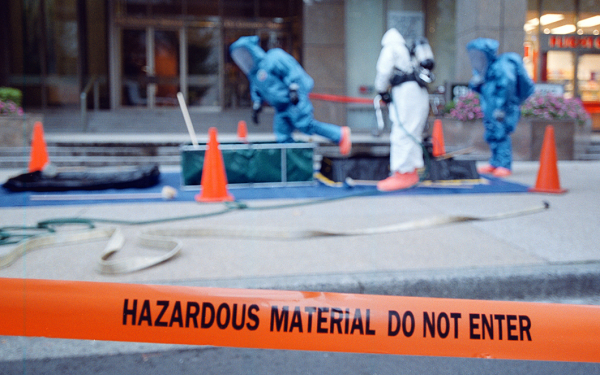Anthrax Scare In Australia: Cocaine Greeting Card Prompts Brisbane Police To Shut Down For Anthrax Investigation

An Australia man nearly caused a quarantine of an entire police station in Brisbane when he brought in a greeting card he believed was laced with anthrax. However, the white powdery substance that was mailed to the man inside of the card turned out to actually be cocaine.
A Queensland Police Service spokesman told ABC News that officers were ordered to evacuate the Boondall Police Station Monday evening after an Aspley resident came into the station with two greeting cards he thought contained anthrax on Monday. The cards – only one of which the man noticed the white power in – were delivered by mail to the man’s house from an address from the United Kingdom.
New post: "
— Dubai Life Coach - Lee Levy (@dubailifecoach_) September 13, 2016
Cocaine greeting card shuts down an entire police station when officers believed the white powder was… https://t.co/FIKoPfHkPc
As a safety precaution, officers blocked off the station while Queensland Fire and Emergency Service conducted a test on the greeting cards to check for anthrax – an infectious disease from Bacillus anthracis bacteria that can bring about serious and even life threatening effects.
After performing a dip-test on the powder, the department determined the substance in the card was only cocaine. Brisbane police are still investigating the address the cards were delivered from with the help of U.K. officials.
According to the Centers for Disease Control, when anthrax spores enter the body – either through food or water contamination, open cuts, and lacerations or via inhalation – the bacteria can multiply, releasing toxins throughout the body that requires antibiotics and antitoxins to recover from. Serious cases of infection can lead to hospitalization or even death.
Anthrax has been used as a weapon in bioterrorist attacks. In 2001, many countries around the globe were on alert for anthrax attacks after media companies and congressional offices in the United States started receiving anonymous letters laced with anthrax spores following the Sept. 11, terrorist attack on the World Trade Center in New York City and the Pentagon in Washington D.C.
© Copyright IBTimes 2024. All rights reserved.






















